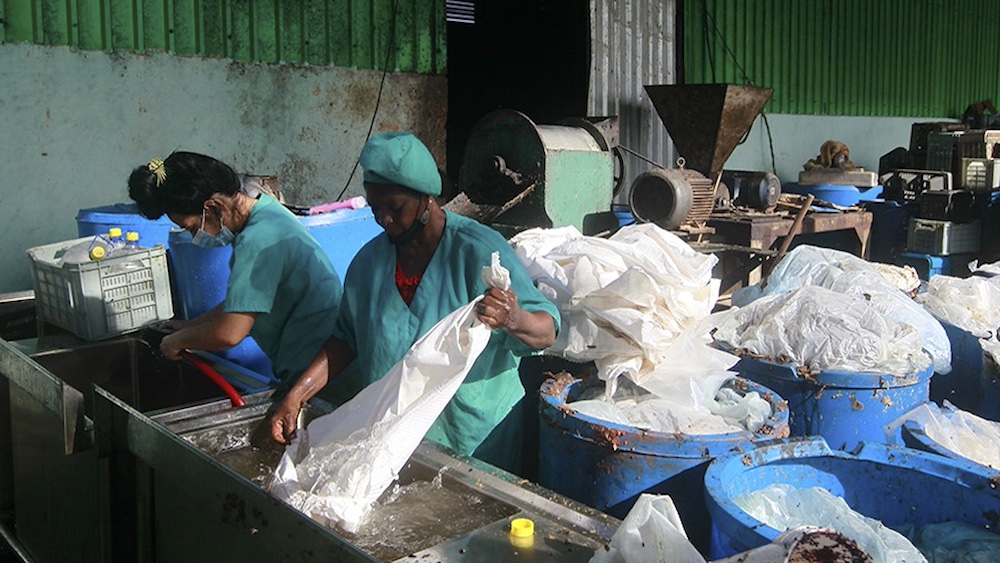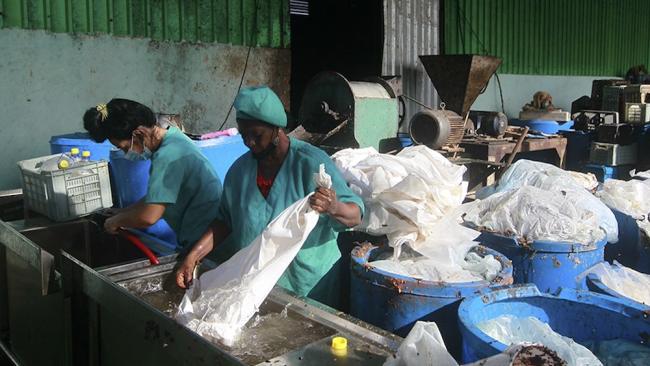The proverb "never stumble upon the same stone twice" arose in classical Greece. Another very old saying is its antithesis: "Man is the only animal that stumbles twice on the same stone," an idea alluded to by Confucius when he said that "a people that does not know its history is condemned to repeat it." That is, those who do not learn from reality will always make the same mistakes.
That wise conclusion voiced by Confucius (2,500 years ago) goes hand in hand with that of another genius, Albert Einstein, for whom doing the same thing over and over again, and hoping to obtain different results, is a clear expression of madness.
I begin with this philosophical preamble because it applies to the new devastating measures implemented by the Cuban regime against the country's private sector, which have, logically, been perceived as a repetition of mistakes made previously, which raises the question: why?
I am referring to new decree-laws that stifle MSMEs and other private businesses, a resolution for "the contracting and commercialization of agricultural products" and to "strengthen the functioning of the socialist state enterprises," and the creation of the outlandish National Institute of Non-State Economic Actors (INAENE), for the fulfillment of "projections and to correct distortions and bolster the economy."
These measures conjure up a déjà vu of the "Revolutionary Offensive" from 56 years ago, and the "Process for the Rectification of Errors and Negative Trends" from 40 years ago.
More than making mistakes, Fidel and Raúl Castro have committed misdeeds
One must be careful not to misunderstand the situation, as we are not dealing here with a repetition of errors due to ineptitude or a lack of experience or knowledge. They were not so decades ago, and they are not now.
Over the course of Castroism's 60 years, Fidel and Raúl Castro, more than making mistakes, have engaged in intentional misdeeds. For example, both of them, along with the Argentine Guevara, were perfectly aware of the horrific consequences of the introduction of Communism in Bolshevik Russia, and then in China.
In China in the 1950s Mao Tse Tung forcibly collectivized agricultural land, created astonishingly unproductive communes, and confiscated crops from peasants. Pompously called "Great Leap Forward," that barbaric campaign decimated agriculture and sank the entire economy. In a space of some 20 years, approximately 30 million Chinese died of starvation.
The Castros also knew that even Lenin had realized that the collectivization of land had produced millions of starving Russians, spurring him, in 1921, to implement the New Economic Policy (NEP), which entailed a return to free production by peasants and the creation of small and medium-sized private agricultural and industrial companies. Farmers were able to sell 90% of their crops on their own, and hire workers. Agricultural production doubled. Hunger disappeared, but it returned as soon as Stalin quashed the NEP.
Despite being aware of the consequences of the nationalization of land in Russia and China, Fidel Castro did the same thing in Cuba. He even broke his promise to carry out agrarian reform and give the land to peasants and agricultural workers. Instead he nationalized 77% of all land confiscated from its rightful owners, and created Castroist versions of the USSR's sovkhozes and China's communes, both producers of mass hunger.
Since then Cuban farmers have been forced to deliver 80% of their crops to the State at paltry prices, and the Government has a monopoly on the country's agricultural trade (Acopio). In fact, the commander reduced food production so dramatically that in March 1962 the "rationing book" was introduced. Incredibly, it's still in effect.
Worst of all, this disaster was still not enough for him, so in March 1968, with his "Revolutionary Offensive," he did away with what was left of a market economy on the Island, dismantling the 57,280 private businesses that still existed, claiming that their owners were "loafers in perfect health who set up stores, ordinary businesses, to rake in 50 pesos every day."
Incidentally, Fidel Castro inadvertently indicted himself as a loafer too, for he, as a college student (and gang member), with money supplied by his father, bought a stand selling fried foods at the busy corner of Infanta and San Lázaro in Havana, passing by just to collect its earnings every day.
When perestroika was implemented Castro I was frightened, and reverted to Stalinism
Eighteen years passed since that "offensive" and, to appease Moscow and to boost subsidies to Cuba, Castro I relaxed the suffocating grip of Stalinist-Guevarist centralism with a new Economic Management and Planning System, a model of economic calculation applied in the USSR since Stalin's death.
In the USSR that did not save Communism either, but at least it was inspired by capitalist rationality. State enterprises had to be profitable without receiving subsidies. They drew up their own plans, they had their own funds, and cash rewards were given to workers. In Cuba, as early as the 1960s, Carlos Rafael Rodríguez had proposed applying this model, rather than Che Guevara's ruinous Stalinist centralism, but it was the latter that prevailed.
With this reform free agricultural markets were opened, companies were given some autonomy to finance themselves, and monetary incentives were given to workers instead of banners and certificates. Agricultural and industrial production recovered a little, and the population felt some relief thanks to the "parallel market" and the "little markets," generating an increase of about 1.5 billion dollars more than the amount of money provided by Moscow.
But when Gorbachev's perestroika began in the USSR in 1985, Castro I was frightened and reverted to Stalinist centralism with the "Process of Rectification...", which triggered a huge, multifaceted economic setback.
Today, 56 years after the "Revolutionary Offensive" and 38 years after the "Rectification of Errors," Castro II, instead of favoring the private sector, has declared war on it when it is most sorely needed, as it is, in reality, that which feeds and dresses Cubans and allows them to survive.
A new onslaught, flying in the face of human nature, undertaken by a mafia
It is clear that the government team led by Miguel Díaz-Canel and Manuel Marrero is, possibly, the most bungling ever in Cuba, but these new decisions, undoubtedly misguided, conform to the "continuity of the socialist revolution" imposed by the dictator, now bearing the title "Historic Leader of the Revolution" and other dinosaurs from the Sierra Maestra.
As the regime needs money to reduce its massive shortfall in vital state revenues (a fiscal deficit equal to 18% of GDP), it wants to obtain funds the hard way through exorbitant fines, abusive taxes and the elimination of tax exemptions for MSMEs. In general, it wants to capture revenue that the state economy is unable to generate.
In just one week in August 157,331 inspections were carried out, which detected some 3 billion pesos allegedly owed to the tax authorities, which the Government is now demanding be paid, and 360 private businesses were closed, according to Granma.
At the same time, the regime wants to economically weaken the independent private sector, and reduce inflation by extracting money in circulation. They do not care that as the money supply is reduced, consumers will have less of it, buy less, and families' hunger and despair will be aggravated.
And there is another very important detail: within the dictatorship's high command there are surely those who, for their benefit, want to undo the Stalinist centralist model, which is on the verge of collapse, but Castro II and other historic hardliners remain politically in charge. Therefore, it cannot be ruled out that the "reformists" lurking in the wings are deliberately adopting measures bound to be calamitous, but that are consistent with Raúl's "continuity," so that the centralist model implodes once and for all.
This is speculative, but it would seem to be a real possibility. Of course, the change preferred by GAESA, their military and civilian cronies, and the more ambitious members of the ruling bureaucracy, would probably resemble the current Russian model, or a hybrid form of "Putinism" and fascist-mafia corporatism, Chinese and Vietnamese traits.
They must tread with caution, however, as the economy's final collapse could lead to very different scenarios, such as another 11-J, this time overwhelming, successful and definitive.

